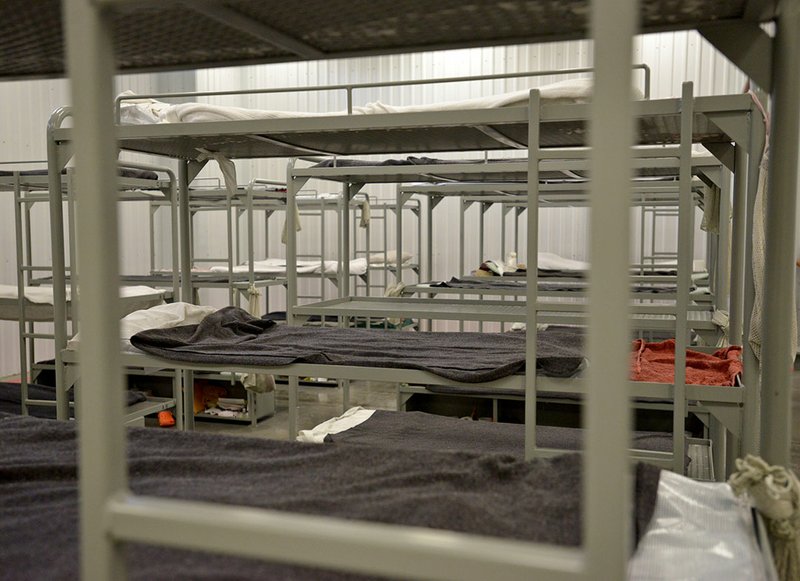In Arkansas, necessity is the mother of incarceration reforms.
The sheriffs of both Benton and Washington counties have, respectively, discontinued or modified their participation in a federal program meant to empower local law enforcement agencies in the nation's efforts to discourage illegal immigration.
Benton County Sheriff Shawn Holloway's office is no longer checking the immigration status of people brought to the jail on misdemeanor charges. That may sound like a Christmas gift to people in Northwest Arkansas who are not legally residents of the United States, but if it's to be considered a gift at all, it seems to be related more to the covid-19 pandemic and convenience than to any Yuletide cheer.
The decision involves the 287(g) program of the U.S. Immigration and Customs Enforcement agency. Participation allows for the training of local jailers to screen people as they're booked with questions designed to discover warning signs that a person might be illegally present in the United States. It can trigger turning over people to immigration agents for further review and, potentially, deportation.
In Washington County, Sheriff Tim Helder in April indefinitely suspended all participation in the 287(g) program his agency has participated in since 2007. Helder said the complexity of operating a jail in the midst of a pandemic was the reason.
Washington County's agreement to participate in the federal government was set to end April 30 unless it was renewed, but Helder chose instead to shelve the program and reevaluate it once the pandemic is brought under control.
Critics have labeled the 287(g) program as racist and unconstitutional. Supporters view it as a less intrusive manner of immigration enforcement than, say, ICE-operated raids in the community.
The motivation to book fewer people into local jails, however, is driven by concerns for the spread of covid-19. Both jails have had their hands full dealing with the illness within their jail populations.
In addition, Gov. Asa Hutchinson's Task Force to Advance the State of Law Enforcement in October recommended county sheriffs and cities reject the federal program. The task force, appointed in June in the midst of national upheaval related to the killing of George Floyd and other cases that raised questions of police brutality, is designed to find ways to enhance trust in communities and improve law enforcement.
At that time, Rogers Mayor Greg Hines told the group his city dropped the 287(g) program because it "drove a large wedge between the police department and our community."
We have no doubt some residents of Northwest Arkansas will suggest broken trust begins with breaking the nation's immigration laws, but when federal enforcement has failed for decades, it's understandable when local officials might decide other community safety issues take priority over serving as local arms of the nation's immigration policies.
The bottom line today is that sheriffs want fewer people -- fewer potential covid-19 patients -- inside their jails. In consultation with local circuit judges and prosecutors concerned about infections within jailed populations, they have liberalized their jail policies to let more people go while they await trial. Like so much else these days, their approach has been colored by covid-19's threat.
From an immigration enforcement perspective, the question remains what local participation in 287(g) will look like in the days after vaccines help to get covid-19 under better control.
With advice like that of the governor's task force, it may be politically more difficult to return to previous approaches. With the anticipated Jan. 20 inauguration of a president whose administration is likely to be less aggressive in the arena of immigration control, the complexion of federal programs and enforcement may change as well.
Covid-19 is a virus everyone will be glad to see in the rear-view mirror once vaccines begin to spread immunity. But in a strange way, immigrants in Northwest Arkansas have it to thank for local law enforcement's decisions to back away from 287(g), reducing to a degree the strains felt by the immigrant community.
Whether that can be a starting point for more trust remains an open question.
More News
What’s the point?
Two sheriffs decide to step back from a federal immigration enforcement program as a result of covid-19, but will it last?

